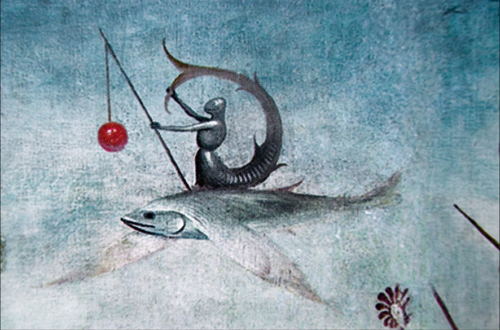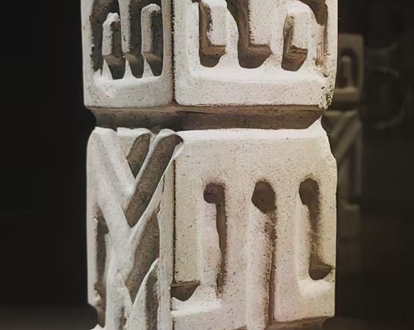December 28, 2018
When we walk through the concepts, we find complex relationships and connections; even better if they come from literature, philosophy, and psychotherapy. To think and reflect differently is to invite each time to dialogue as if it were the first time; to ask and critically question established truths, conventional meanings, stereotypes, platitudes, and prejudices. It is approaching aesthetics, art, a theme of creativity, imagination.
For example: to understand intellectual integrity, it seems relevant to mention the Ecuadorian writer Leonardo Valencia, who quotes Giorgio Manganelli (1976): “The didactic language, aimed at people who want to learn notions that they ignore, tends to limit the range of meanings and to eliminate nuances, that mysterious halo that surrounds the word”. (El Universo, December 11, 2018).
Let’s see another entry, which can mean the difference between «being and nothing», now with Goethe: «Treat a human being as he is, and he will remain what he is. However, treat it as it can become, and it will become what it is called to be”. In cultural, social, and relational contexts prone to disqualification, crudeness, and the abject, with reactive attitudes, self-victimizations, cowardice, and fashionable vulgarity, it can be that appreciative gaze that builds the difference that generates unthinkable futures; that creates them, with joy.
Or, as the best contemporary Spanish writer (for us) -we suggest “Corazón tan blanco”- Javier Marías reminds us:
… As Savater pointed out in Captain Thunder, he also gave us a few lessons in practical ethics, although many of our generation have unlearned them: lies, injustice, abuse, and oppression must not be overlooked; friendship must be highly valued and can never be betrayed; It is not necessary to be cruel, nor with the wicked, with whom it is possible to be merciful if it is possible to defeat them; the enemy must be offered a way out when he lays down his arms and is no longer in danger; and there is no need to despair because there will always be a new, saving vignette, after the magic word, «To be continued», a promise of happiness to come.
(The Phantom Zone. April 9, 2006)
Let us reflect on the position of the Ecuadorian poet Iván Carvajal – we quote him extensively for the value and significance of his contribution – who in his article «Criticism and Ethics» (Diario El Comercio, January 1, 2000) proposes:
Philosophy is essentially problematic. What you are looking for from the reader is the questioning of his world. Philosophy does not console. The best thing about it is its deconstructive, devastating force … Philosophy is critical thinking, a skeptical attitude: the questioning of knowledge, of consecrated truths … Nietzsche warned that philosophy only serves to sadden and denounce low forms of thought … The conditions of work and, more broadly, of daily life -the entire scope of reproduction of human life- are not reasonable, free, or fair … The mechanisms of domination can be repressive -examples are abundant every day- or covert, through the massification of the subjects. Barbarism, under multiple forms of violence and stupidity, dominates life. Corruption and double standards dominate politics and economics … Philosophy is revealed necessary to demonstrate the devices of some great prejudices, of nationalist, religious or political fundamentalisms, of the cynicism of the champions of the «free market» in late capitalism and globally. But also of more subtle prejudices: certain forms of pastoral power that day-by-day institute the moral and the immoral, the limits between Good and Evil, the «politically correct» … It is necessary to question relativism, that lazy form of dominant conformity, demanding reasonable criteria for the positions assumed. It is worth highlighting the emergence of forms of action destined to change public and private life: the profound social and cultural change operated by women: environmental movements, civil rights movements … Philosophy is necessary as a channel destined to establish a reasonable relationship with what is different: other cultures, the other gender, other beliefs, Nature. To insist on our possibility of metamorphosis… Philosophy is necessary, here and now, as a critical attitude towards the most dangerous forms of stupidity for life.
In this blog, we have been proposing constantly and consistently that, what is important to understand and sustain is not only about the problems that concern or oppress us, how much and how much of the resources and strengths that we have and contribute to mobilizing. The constant question, which we need to recognize and understand, in addition to giving, again, each time other and the new tentative answer is: what do we want to do, and for what, together, differently?
The need to open spaces for dialogue and reflection in Ecuadorian society will allow us to contribute to generating a public life committed to the well-being of all. It is about fostering the consolidation of a democratic culture based on the permanent, consistent, and genuine practice of open dialogue. Dialogue means opening up to listen to others together, beginning to think from a different place, how to responsibly co-construct the conditions that make social welfare viable. It is a collective exercise of imagination and creativity to jointly resolve the important issues of citizen coexistence in a context of respect, critical reflection, and significant contributions.
It is talking about what is significant to generate possibilities for future innovators. Talk without competing for who wins, accepting social polyphony, respecting dissent, and recognizing the right to diversity and differences; in such a context, creativity, social coordination, and productive innovation flourish. By reflective conversation: isolation, prejudice, and social rejection are broken; in dialogue one is with the others, significant relational links are created with others, something joint is built that did not exist before to create new social realities and generative solutions to existing conflicts. The challenge is to create conditions for transformation.

English translation of Bruno Tapia Naranjo


